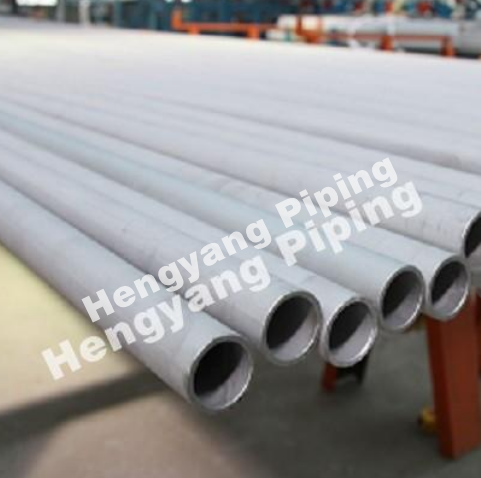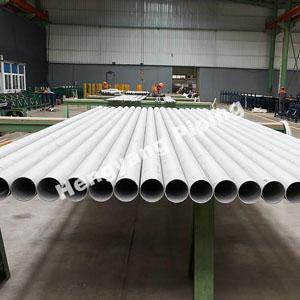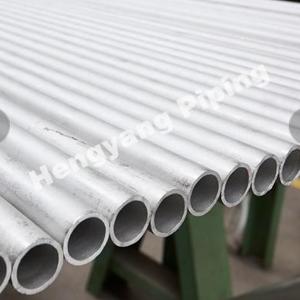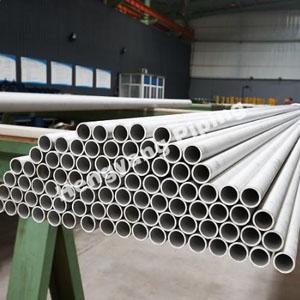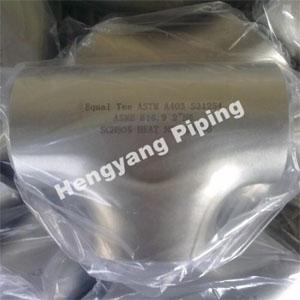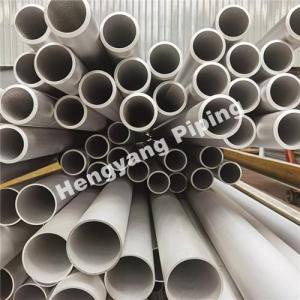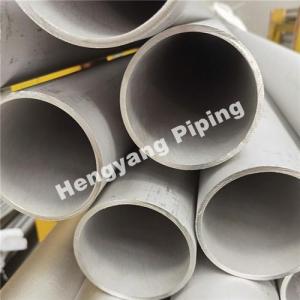What Is Nickel Alloy Pipe?
Nickel alloy pipes are a type of steel pipe made from a combination of nickel and other elements, such as chromium, molybdenum, iron, copper, and titanium. These alloys exhibit excellent resistance to corrosion, high-temperature strength, and other desirable properties, making them suitable for various industrial applications. In this article, we will explore nickel alloy pipes in more detail, including their composition, properties, and common uses.
Composition of Nickel Alloy Pipes:
Nickel alloy pipes are composed of primarily nickel, which is a versatile and highly corrosion-resistant metal. However, to enhance specific properties, other elements are added to the alloy. The choice of alloying elements and their proportions depends on the desired characteristics and the intended application. Some common elements used in nickel alloy pipes include:
1. Chromium (Cr): Chromium improves the corrosion resistance of nickel alloys, especially in oxidizing environments. It forms a protective oxide layer on the surface of the alloy, known as passivation, which helps prevent further corrosion.
2. Molybdenum (Mo): Molybdenum enhances the high-temperature strength and corrosion resistance of nickel alloys. It also provides resistance to pitting and crevice corrosion, making the alloy suitable for aggressive environments.
3. Iron (Fe): Iron is commonly added to nickel alloys to improve their strength and ductility. It also contributes to the overall corrosion resistance of the alloy.
4. Copper (Cu): Copper improves the resistance of nickel alloys to corrosion by acids, such as sulfuric acid and hydrochloric acid. It also enhances the thermal conductivity of the alloy.
5. Titanium (Ti): Titanium improves the resistance of nickel alloys to corrosion, especially in reducing environments. It also provides stability at elevated temperatures.
UNS N06625 / Inconel 625 / W.Nr.2.4856
Properties of Nickel Alloy Pipes:
Nickel alloy pipes exhibit several advantageous properties, which make them ideal for various applications. Some key properties of nickel alloy pipes include:
1. Corrosion Resistance: Nickel alloys offer exceptional resistance to corrosion, both in acidic and alkaline environments. They are resistant to various corrosive media, including seawater, sulfuric acid, hydrochloric acid, and alkaline solutions.
2. High-Temperature Strength: Nickel alloys retain their strength and structural integrity at elevated temperatures. They exhibit excellent creep resistance, making them suitable for applications that involve high temperatures and prolonged exposure to stress.
3. Ductility and Toughness: Nickel alloys have good ductility and toughness, allowing for easy forming and fabrication processes. They can be readily shaped into pipes, tubes, and other complex geometries.
4. Thermal Expansion: Nickel alloys steel have a low coefficient of thermal expansion, which means they expand and contract less with changes in temperature. This property helps to minimize dimensional changes and stress in high-temperature applications.
5. Electrical Conductivity: Some nickel alloys, such as Monel, exhibit good electrical conductivity, making them suitable for electrical and electronic applications.
Common Applications of Nickel Alloy Pipes:
Nickel alloy pipes find extensive use in a wide range of industries and applications. Some common applications include:
1. Chemical Processing: Nickel alloy pipes are widely used in chemical processing plants, where they provide excellent resistance to corrosive chemicals, high temperatures, and pressure. They are used in reactors, heat exchangers, piping systems, and other equipment.
2. Oil and Gas Industry: Nickel alloy pipes are employed in oil and gas exploration, production, and refining operations. They are resistant to corrosive environments, such as offshore drilling platforms, sour gas applications, and refineries.
3. Power Generation: Nickel alloy pipes are used in power plants, particularly in components that are exposed to high temperatures, such as boilers, heat exchangers, and steam turbines.
4. Aerospace Industry: Nickel alloy pipes find applications in the aerospace industry due to their high-temperature strength, corrosion resistance, and lightweight nature. They are used in aircraft engines, exhaust systems, and other critical components.
5. Marine Industry: Nickel alloy pipes are used in marine applications due to their excellent resistance to seawater corrosion. They are employed in shipbuilding, offshore platforms, and desalination plants.
6. Pharmaceutical and Food Processing: Nickel alloy pipes are utilized in industries where corrosion resistance and cleanliness are crucial, such as pharmaceutical manufacturing and food processing. They are suitable for transporting corrosive chemicals, sterile liquids, and food-grade materials.
In summary, nickel alloy pipes are corrosion-resistant, high-temperature strength pipes made from a combination of nickel and other elements. They offer excellent resistance to corrosion, high-temperature strength, ductility, and other desirable properties. Nickel alloy pipes find applications in various industries, including chemical processing, oil and gas, power generation, aerospace, marine, and pharmaceuticals. Their versatility and performance make them a preferred choice for demanding environments and critical applications.
If you want to know more information about Nickel alloys steel, please contact us. We will provide professional answers.
